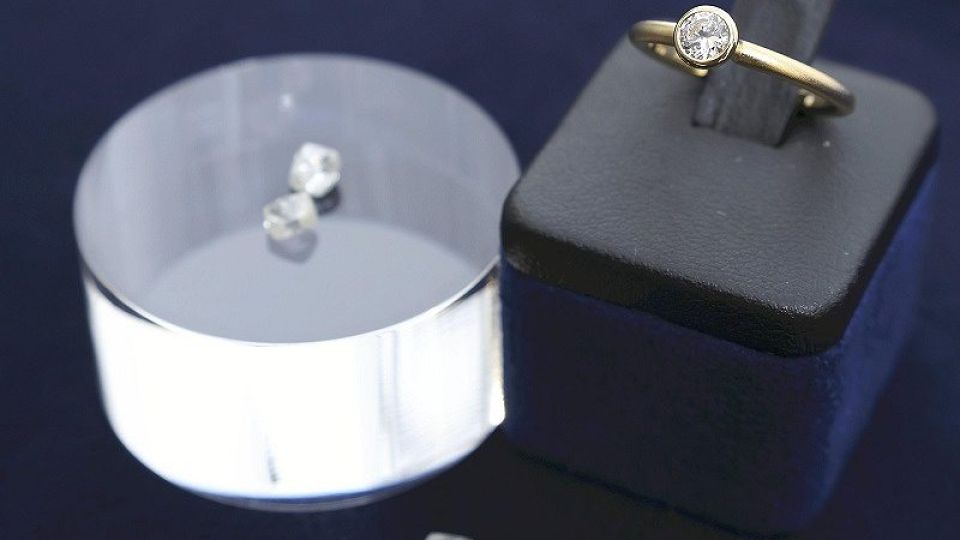November 17, 2022
TOKYO – So-called third diamonds, which divers harvest from the ocean floor, are set to make full-on landfall in Japan.
Such diamonds are scraped from diamond mines by erosion from rain or wind before being washed to the ocean. They are expected to attract attention as “ocean diamonds” due to their low environmental impact, unlike mined or synthetic diamonds.
On Tuesday, Queue Inc.’s Brilliance+, a jewelry brand that operates outlets in Tokyo, Osaka and Nagoya, among other areas, started offering engagement and wedding rings that use third diamonds. The engagement rings start at around ¥430,000.
To harvest third diamonds, divers contracted with a British company pump gravel from waters around South Africa at a depth of 10 to 15 meters. Workers then manually sift through the gravel for raw diamonds.
The quality, color and clarity of the diamonds are no different from those of regularly mined diamonds. However, since it is time-consuming to search for the diamonds, they go for two to three times the price of mined diamonds.
Harvesting diamonds from mines takes a major toll on the environment, as the process involves the use of heavy machinery. Some have also accused the industry of using child labor. Relatively inexpensive synthesized diamonds, meanwhile, require large amounts of electricity to produce.
Working conditions are said to have received particular attention in the harvest of third diamonds, with local, professional divers being employed and ships only being operated on days when the sea is calm.
Shopping in ways that support environmental protection or the resolution of human rights or other social issues is called “ethical consumption,” and has been gaining in popularity in Europe and the United States.

